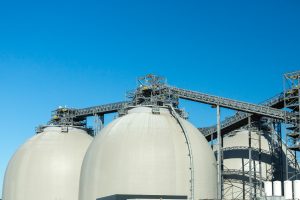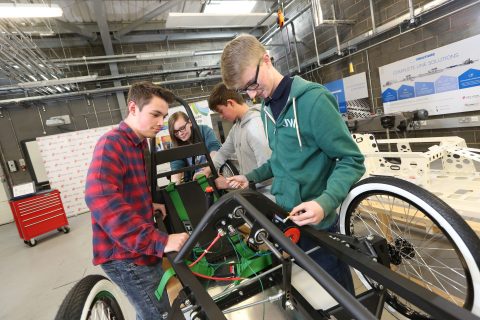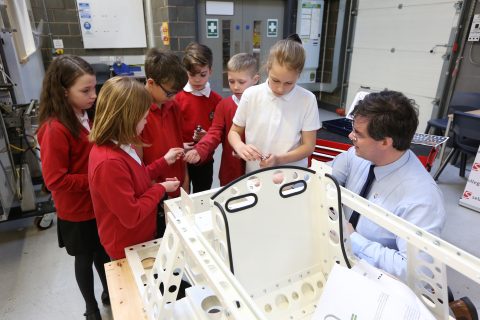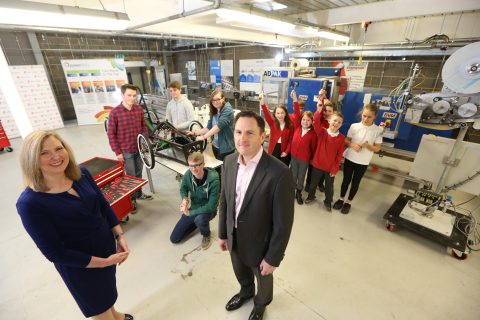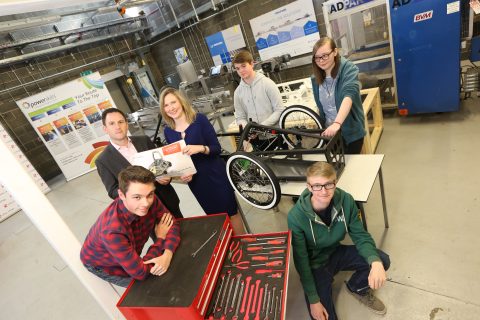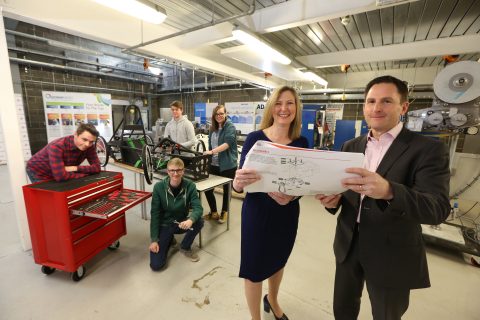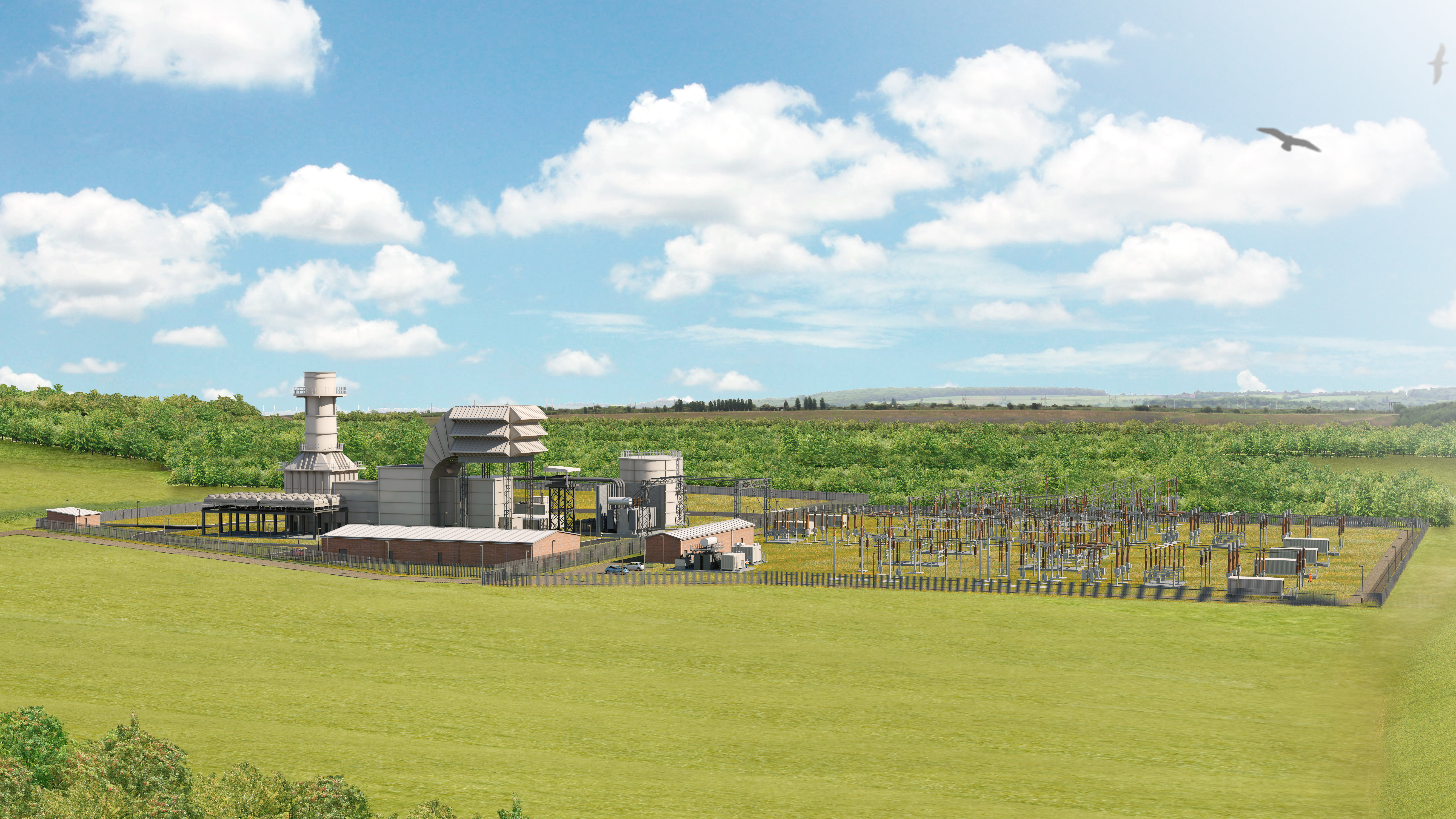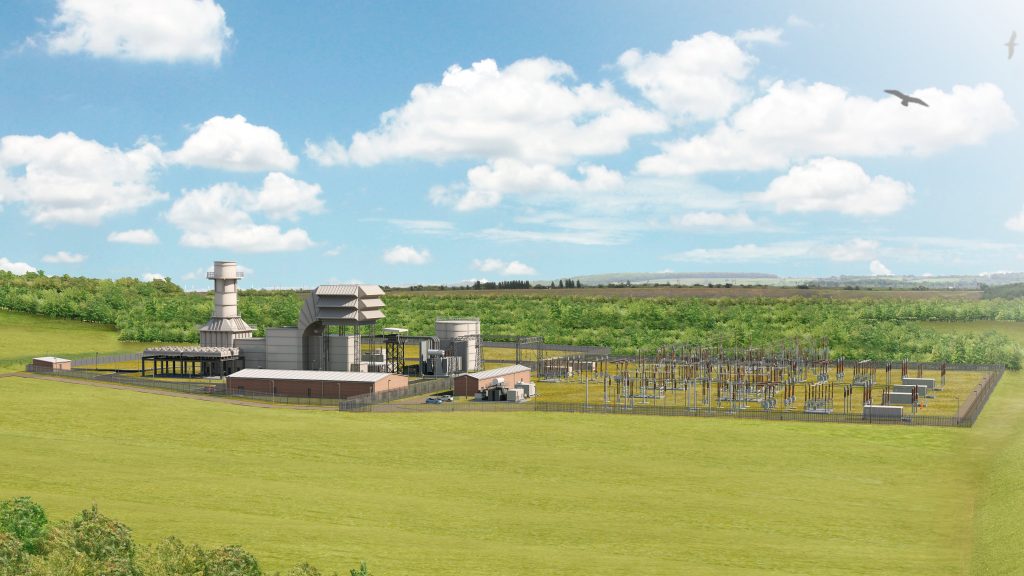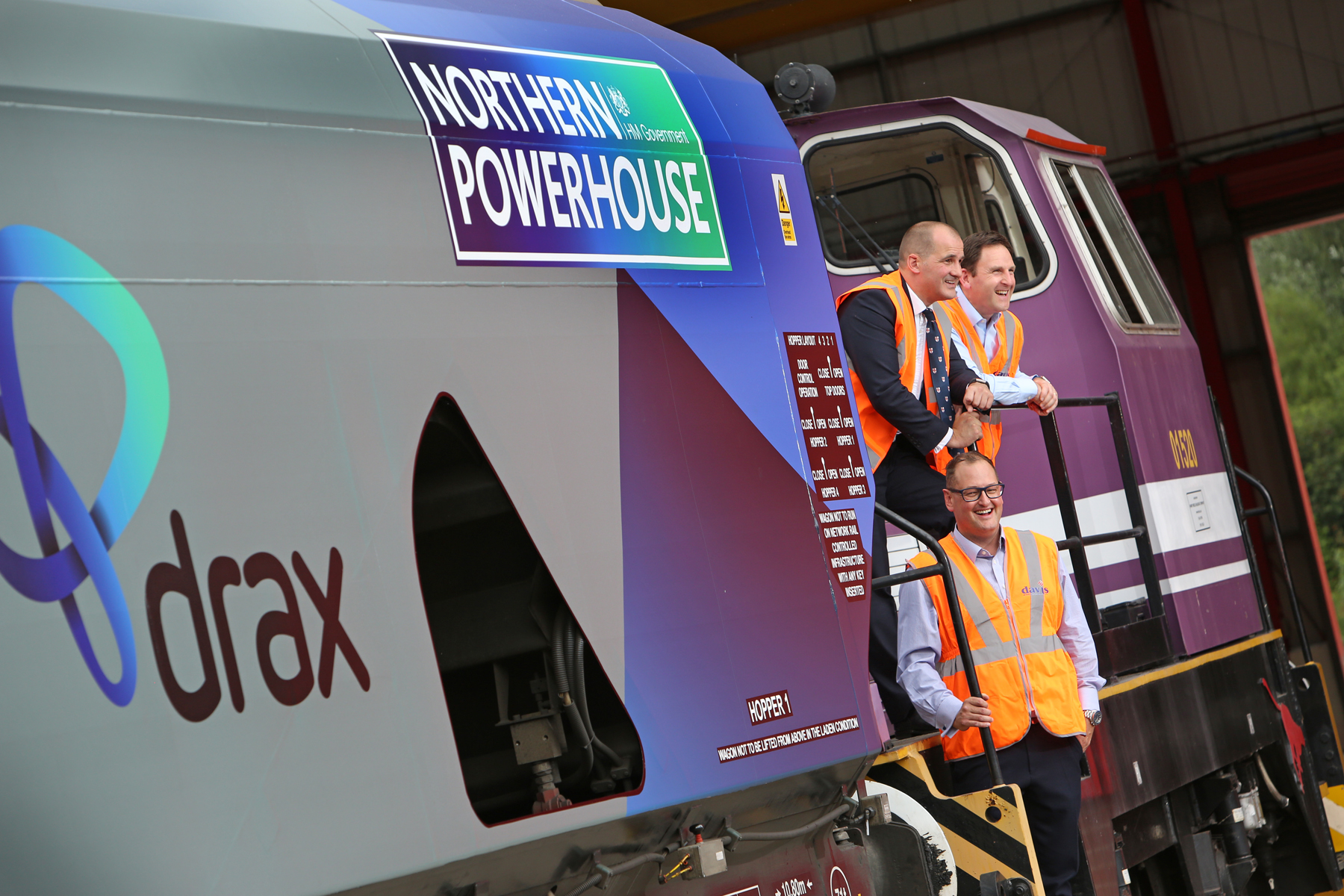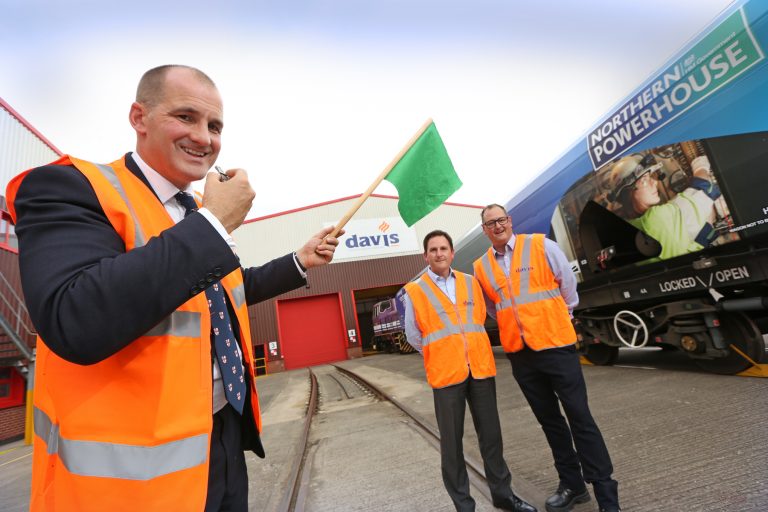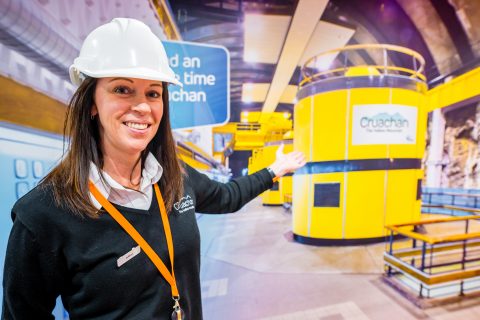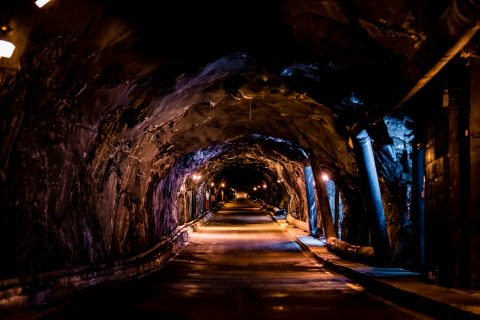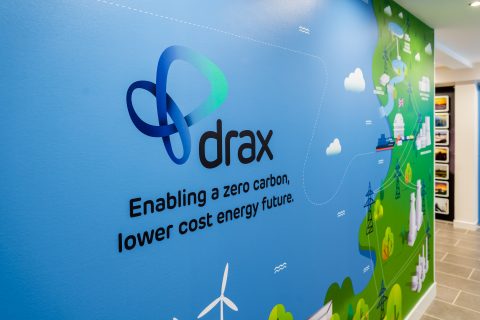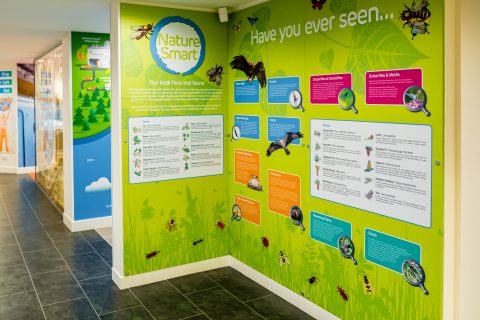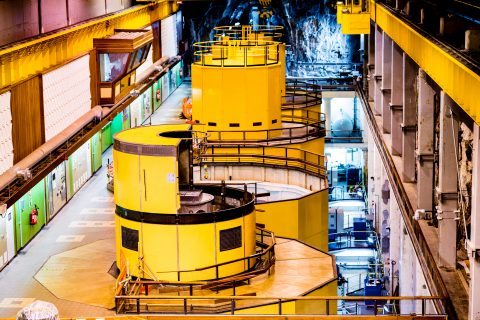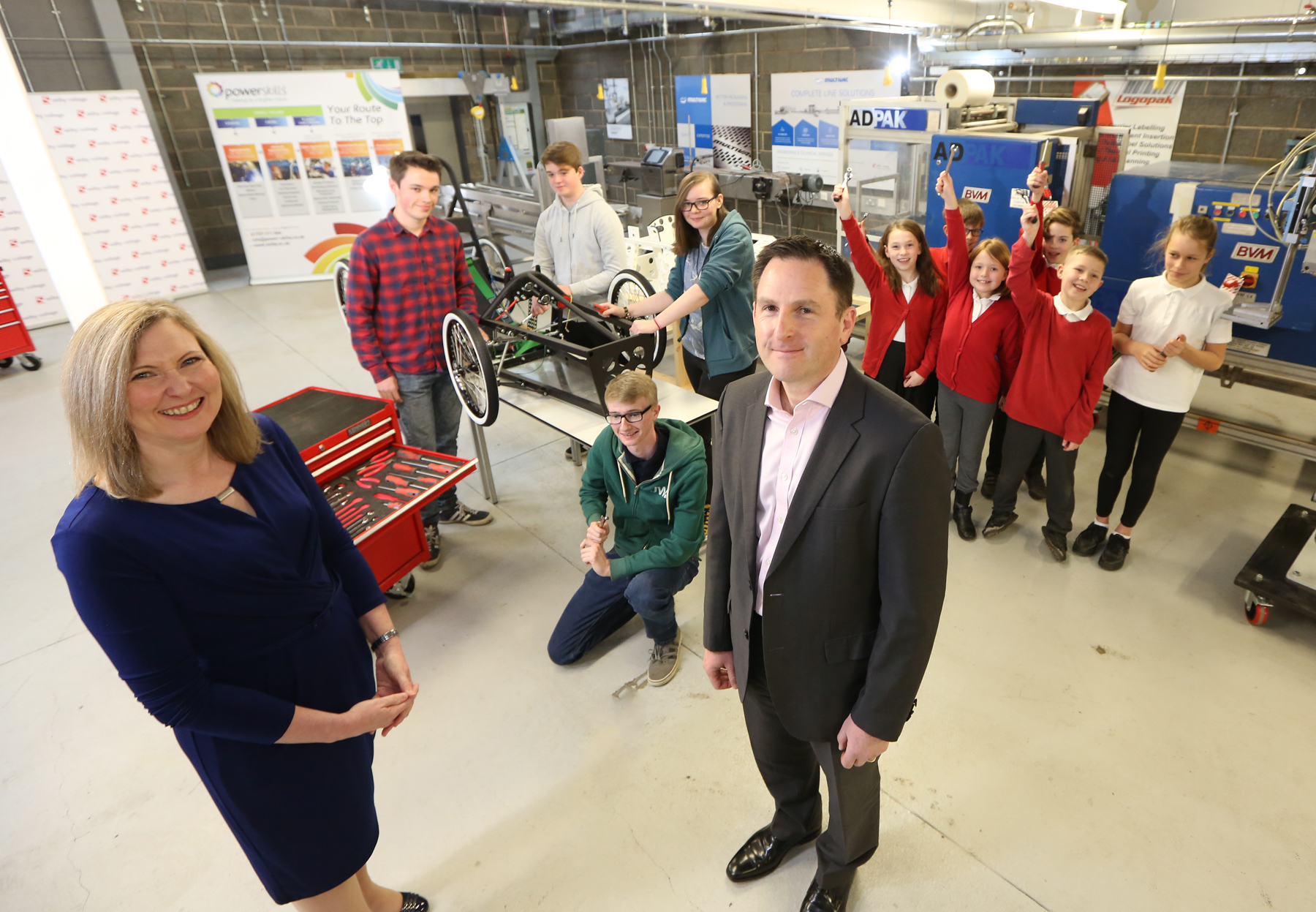
School pupils and college students from Selby could move into pole position when it comes to boosting their skills by taking part in a city centre electric car race – thanks to an exciting new initiative from the UK’s biggest power station.
Teams from six schools and a college from Selby, North Yorkshire, will build and race their own electric cars as part of Drax Group’s initiative to encourage young people to study STEM (Science Technology Engineering and Maths) subjects, helping create the skilled workforce businesses need for the region’s economy to thrive.
Drax is investing £35,000 to support the schools and college near its North Yorkshire power station, including providing them with the car kits, as well as the tools and equipment needed to build them.
Engineers from the power station will also spend time with each of the seven teams to help assemble the cars and learn how to drive them ahead of a city centre race in Hull, on April 28, organised by the Greenpower Education Trust and sponsored by Drax.
Andy Koss, Drax Power CEO, said:
“Inspiring young people to study STEM subjects is the key to ensuring the next generation of potential employees has the skills that businesses like ours need. A skilled workforce will enable Drax and other businesses in the North to continue to grow, building a strong regional economy with thriving communities.
“We’re really excited about working with the schools on their electric vehicles. Seeing all the students from Selby with their cars on the starting grid in Hull is going to be a really proud moment for us – and who knows, maybe one or two of them will see the chequered flag.”
The Northern Powerhouse Partnership has published reports on social mobility including its Educating the North and Next Steps for the Northern Powerhouse.
Northern Powerhouse Partnership Director Henri Murison welcomed Drax’s latest scheme. He said:
“This initiative by Drax to inspire students of all ages is a brilliant way to bring STEM subjects to life and make their studies even more relevant to the highly-skilled jobs available in industries here in the North.
“Our research and that by the Children’s Commissioner, Anne Longfield, has shown that too many children in the North are falling behind their counterparts in other areas of the UK, leading to a serious skills shortage for employers. Talents are not being fulfilled when those growing up in the North enter the world of work. We need more Northern Powerhouse employers and their employees to give their time to provide inspirational experiences for young people, like this one at Drax, keeping working class boys engaged by what they are learning whilst breaking the glass ceiling for girls and young women.”
Four primary schools – Barwic Parade, Camblesforth, Selby Community and Selby Abbey – receive a 15mph Goblin G2 battery-powered car, which will arrive in flat-pack form ready to be assembled by the students and teachers.
Older students from Selby High School, Holy Family Catholic High School and Selby College will build the more powerful Formula 24 car, which can reach speeds of up to 30mph.
Both types of car take around 15 hours to build, with the teams also being required to design their own bodywork.
They will all have assistance from Drax employees, who will help the students to learn about battery power, engine gearing and how a car works.
Liz Ridley, Deputy Principal, Selby College said:
“Being able to give some of our students the opportunity to build their own electric vehicle and then race it is incredibly exciting and a great way to get them engaged in STEM learning.
“Meeting people from Drax and working alongside them to build the cars is giving the students important insights, bringing the world of work to life. The race day will be a fantastic experience for everyone involved.”
Once the schools have built their electric vehicles, the students will take on competitors from across the country, in the race around the streets of Hull in April.
The project is part of Drax’s education programme, which aims to encourage more people, including female students, to study STEM subjects and increase the opportunities they have to secure skilled jobs.
ENDS
High resolution photos
Click on the photo to view/download.
- College students working on their F24.
- Barwic Parade children with Graeme Woodall from the college working on their Goblin.
- College students working with primary school children on their Goblin.
- Liz Ridley, Deputy Principal, Selby College, and Andy Koss, CEO, Drax Power, with college and primary school students in front of the F24.
- Andy Koss, CEO, Drax Power, and Liz Ridley, Deputy Principal, Selby College, with college students and their F24.
- Andy Koss, CEO, Drax Power, and Liz Ridley, Deputy Principal, Selby College, with college students and their F24.
Media contacts:
Mark Duffell
MCD Communications Ltd
E: [email protected]
T: 07969 080 272
Jessica Gorton
Drax Group Press Officer
E: [email protected]
T: 07712 677 177
Editor’s Notes
The race in Hull will take place on April 28, when there will be two sets of events featuring the Selby school teams:
- The primary school teams will take part in a series of drag and slalom races in their Goblin cars. The top drivers from each team will then race against each other in a final 1km circuit through the city centre.
- Students from the secondary schools and colleges will race the F24 cars around the same circuit in an endurance test, with the winner being the team which can complete the most laps in 90 minutes. The teams will need to switch between three drivers and maintain their cars during the race.
EV statistics
- Official figures show that the global stock of electric cars rose to over 3 million in 2017, up from 14,260 in 2010. (House of Commons: BEIS Committee: Electric Vehicles: Driving the Transition, October 2018)
- The International Energy Agency has estimated that the number of electric passenger cars and light commercial vehicles could reach 125 million by 2030 (International Energy Agency, Global EV Outlook 2018, May 2018)
- In 2017 the UK ranked fourth worldwide by market share, with EVs representing 1.7% of all new car and van sales (Committee on Climate Change, Reducing UK emissions 2018 Progress Report to Parliament, June 2018)
- Formula E is the pinnacle of electric motor sports, with races on city streets and tracks around the world. The latest 2019 Formula E cars can sprint to 62 mph in 2.8 seconds — and reach speeds of up to 174 mph (Bloomberg, November 13, 2018) although the world’s fastest EV is claimed to be the £2m Pininfarina Battista, unveiled at the Geneva Motor Show. Maker Automobili Pininfarina claims it does 0-62mph in less than two seconds, 186mph in less than 12 seconds, has a top speed of more than 250mph, and does 280 miles on one charge.
About Drax
Drax Group’s ambition is to enable a zero carbon, lower cost energy future. Its 2,600-strong staff operate across three principal areas of activity – electricity generation, electricity sales to business customers and compressed wood pellet production.
Power generation:
Drax owns and operates a portfolio of flexible, low carbon and renewable electricity generation assets across Britain. The assets include the UK’s largest power station, based at Selby, North Yorkshire, which supplies six percent of the country’s electricity needs.
Having converted two thirds of Drax Power Station to use sustainable biomass instead of coal it has become the UK’s biggest renewable power generator and the largest decarbonisation project in Europe.
Its pumped storage, hydro and energy from waste assets in Scotland include Cruachan Power Station – a flexible pumped storage facility within the hollowed-out mountain Ben Cruachan. It also owns and operates four gas power stations in England.
B2B supply:
Drax owns two B2B energy supply businesses:
- Haven Power, based in Ipswich, supplies electricity and energy services to large Industrial and Commercial sector businesses.
- Opus Energy, based in Oxford, Northampton and Cardiff, provides electricity, energy services and gas to small and medium sized (SME) businesses.
Pellet production:
Drax owns and operates three pellet mills in the US South which manufacture compressed wood pellets (biomass) produced from sustainably managed working forests. These pellet mills supply around 20% of the biomass used by Drax Power Station in North Yorkshire to generate flexible, renewable power for the UK’s homes and businesses.
For more information visit www.drax.com/uk
About Greenpower
- The Greenpower Education Trust was founded in 1999 to inspire young people into STEM (science, technology, engineering and mathematics) through the unique challenge of designing, building and racing an electric street car.
- The event in Hull on April 28 is hosted by Greenpower and Green Port Hull, which is supported by the Regional Growth Fund, and will feature three race categories contested on a 1km track:
- Institution of Engineering and Technology (IET) Formula Goblin for nine to 11-year-olds tackling drag and slalom challenges;
- IET Formula 24 for 11 to 16-year-olds taking part in two 90-minute endurance races;
- IET Formula 24+ is a one-hour race for 16 to 25-year-olds.




